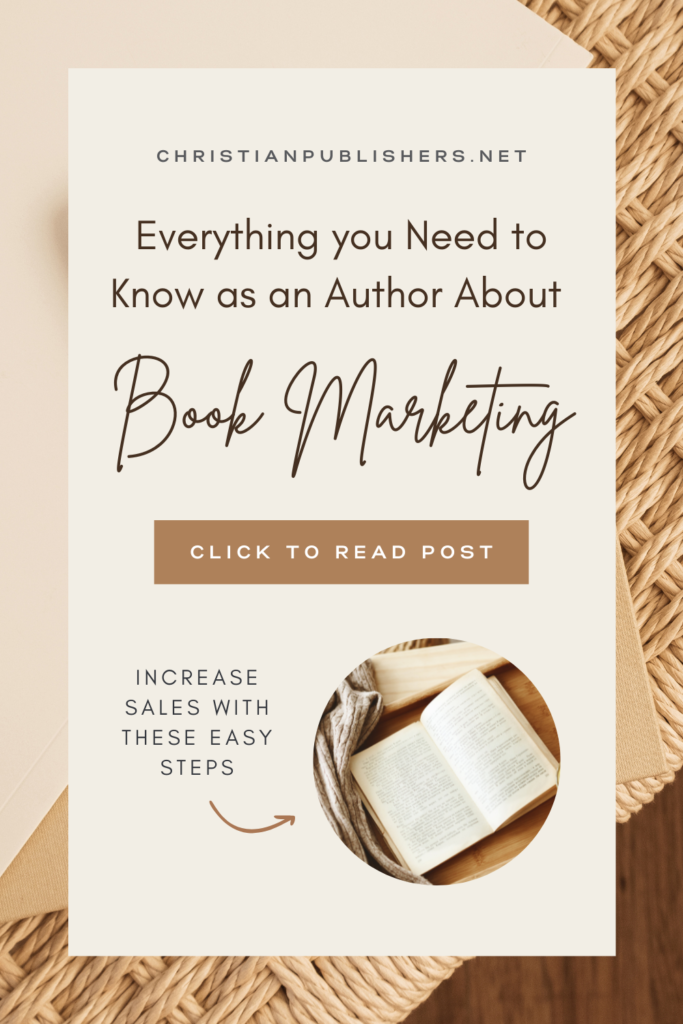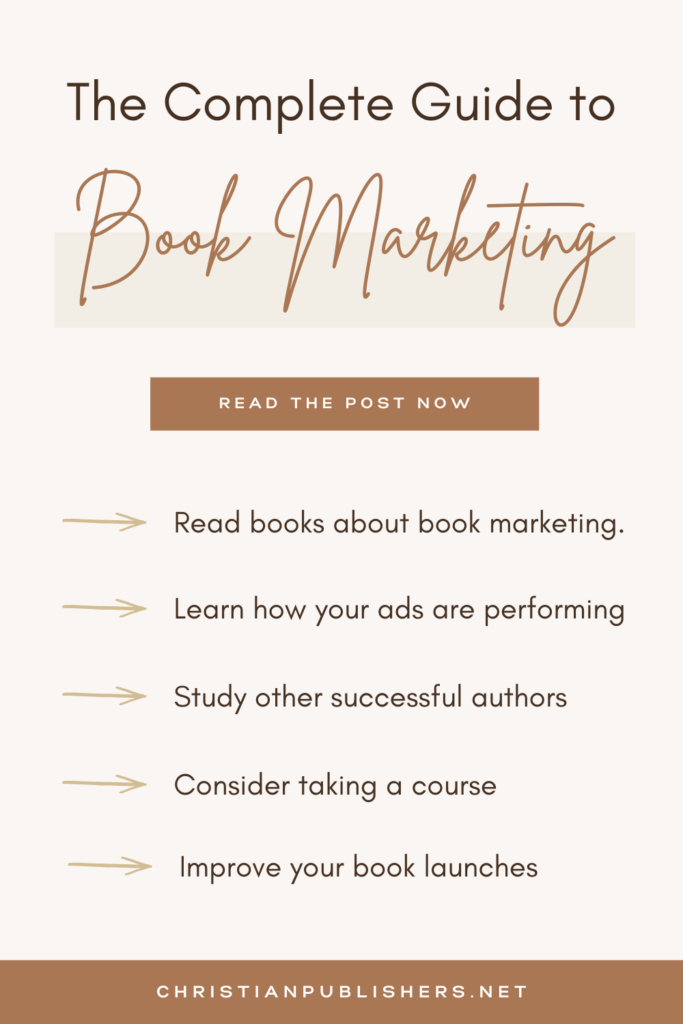
Book Marketing Ideas to Help Authors Increase Sales
I’m a problem solver. I like minor problems with simple solutions. On the other hand, I love to study. I have three master’s degrees, and I’m always reading something. Maybe you’re like that, too. If you can get your love of studying and your problem-solving mentality to meet for coffee every week, you’ll come to enjoy this whole marketing venture you’ve taken on as an author. At least, that’s my experience. I call it the Ph.D. approach to book marketing because it’s an approach to problem-solving that drags on like a never-ending Ph.D. But the benefit is that, as long as you’re still studying, you’re still learning and growing. You’re getting more and more familiar with the art of marketing. And that’s going to be far more helpful than a short-sighted approach.
The Short-Sighted Approach
The short-sighted approach to book marketing is probably the default position for any new and upcoming writer. You’ve published a book and maybe fulfilled a childhood dream. Congrats! That’s worth celebrating. But it’s also worth—strange as it may sound—building a business on.
We don’t think that way initially, do we? Instead, we look for a fast track to book marketing, something we can do to boost our book into stardom and land it on the New York Times Bestseller list (hey, it could happen). And so we exploit social media, scout shortcuts for acquiring more reader reviews, and throw some money into Facebook Ads. (If you don’t do that, then good for you. You’re better than I was.) You might even splurge to take a course on book marketing like I did, thinking the whole time that this would be the one thing that exploded your reach.
And what happens? When those shortcuts don’t pan out, we get frustrated and discouraged. Then we question our own skill as an author, even our own identity (maybe that’s just me). Am I really cut out for being an author? Maybe my message isn’t strong enough? Maybe my style isn’t engaging. Maybe I should rethink this whole independent writer gig. It shouldn’t be this hard, right?
Actually, it should be this hard. If it was easy, then everyone would do it. Lots of people try (and then abandon it) being an independent author because it looks easy, but then they find out just how difficult it is. If book marketing is hard and you’re still willing to pursue it, then chances are you’re one of the few who is going to last in this world.
If the short-sighted approach to book marketing leaves us frustrated and discouraged, what can we do? Short answer: start your PhD.
The PhD Approach to Book Marketing
This will be your own personal PhD. You’re setting out to study your work and its reception in the world. And as with traditional PhD programs, this self study isn’t a short-range thing. It’s going to take years of publishing coursework, comprehensive exams in marketing, and then you’ll be coasting down that long road of practicing what you’ve learned. That part will last the rest of your life. Think of it as the teaching component that comes after your PhD work. At that point, you’ll have no qualms about admitting that learning is an indefinite endeavor.
What I’m calling the PhD approach to book marketing is a commitment to the long and slow study of how to market, advertise, and get your message into the hands of your ideal reader. It’s something that takes years—not weeks or months—to master. In fact, “master” might never be the word you use to describe yourself in this area because there’s always new things to learn. But amidst those new things, here are some areas of book marketing research I’ve found helpful in my own journey. I can continue to follow the threads below to improve as a book marketer, and I’m confident the efforts will pay dividends, as they already have.
Read books about book marketing.
Surprise, surprise. It can be tough to weed through the piles of books about book marketing, and some of them now add a year to the title so that they can update every time Amazon changes its algorithmic mind. But there are some helpful broader guides that can help you build a base. I’ve found Seth Godin’s work on marketing to be fun and engaging (especially This Is Marketing). But for authors, I believe David Goughran’s books stand the test of time and offer carefully weighed advice, paired with unique insights about the world of Amazon and BookBub. You might check out his Amazon Decoded, and Following, and Let’s Get Digital. There’s always new stuff coming out. Be careful with books that build advice based on one author’s alleged success. It seems like everyone wants to sell their success story these days. So, measure what you’re reading against your own experience and the other books you’ve read. The point is: keep studying! Keep your head in the world of book marketing.
Learn about how your ads are actually performing over extended periods of time.
It’s very tempting, especially when you don’t have tons of money to spend, to let your ads run for only a short time and then shut them off. I was doing this for years with Amazon ads. The trouble with that is, even if you save some money in the short-term, you lose something far more valuable in the long term: data. That may sound trite, but data collection is a prerequisite for independent authors. You need to know, based on your ads, what types of ad copy works best, what types of word searches your ideal readers are performing, what elements of a book cover seem most effective. And, yes, you need to look at the nerdy details, too—click-through rate (CTR), impressions, the format of the book that people are buying (paperback, ebook, hardback, audio). Letting your ads run for longer periods of time will help you glean more trustworthy data. And you can use that data as you move forward creating new ads. If you can, let the ads run so that you can study them. Your Ph.D. is long and slow. Enjoy the process.
Study what successful authors are doing for book marketing.
It’s always interesting to look at what the “Big Five” publishers (Penguin/Random House, Hachette Book Group, Harper Collins, Simon and Schuster, and Macmillan) are doing for a book that’s in your niche. As a Christian author, look at Zondervan, too (now, I believe, subsumed by Harper Collins). Thomas Nelson, B&H, and Baker are good to peruse as well. Find books that are similar to the ones you’ve written or published, and look at what they are doing for marketing. Study the cover, the book blurb, the description in Amazon—anything you can notice that might help you improve your own presentation and marketing. Once more: keep studying.
Make each book launch better than the last one.
This is always my philosophy for book launches. Each one should be better than the last. Study what worked in your last book launch, what seems to work in others’ launches (by the way, it’s helpful to join someone else’s launch team for ideas, and, of course, to support another writer!). Then apply what you’ve learned to your own launches. For instance, a few books ago, I made it a staple of my launches to have a private Facebook group for the launch team. And then I learned that I could also set up “Guides” (tasks) within the group to help ensure that people knew what to do at each stage of the launch. With each book, I’ve also learned more about how I can use Amazon categories to my advantage to get more visibility. Keep studying your launches. Keep learning.
Consider taking a course that shows you the ropes.
Lastly, you could consider taking a course on book marketing. I put this last because it can be pretty pricey. But it may be worth it. I took an “Ads for Authors” course by Mark Dawson, and I found it to be more than worth it. Within a month or two, I more than made up for the cost of the course. And now I have access to that course content as it’s regularly updated. This may not be for you, or you may not have the funds to do it but it can be worth monitoring for the future. It’s always helpful to learn from people who’ve had outstanding success in the book marketing world.
Understand that, if you’re building a business around publishing, you’re doing a PhD, not a week-long seminar. Don’t worry about the shortcuts. They’ll just frustrate you. Focus on your long game, and keep the frustration at bay. Over time, you may even learn to enjoy this part of publishing more than you thought you would. In the end, book marketing is simply another way in which you’re learning to serve readers, and that’s why you got into this whole writing thing in the first place, right?
About the Author
Pierce Taylor Hibbs (MAR, ThM Westminster Theological Seminary) is an award-winning Christian wordsmith and educator who builds things to bring readers closer to God. He’s the author of several books, including Theological English (2019 ECPA Finalist), Finding God in the Ordinary, The Speaking Trinity, Struck Down but Not Destroyed (Medalist in the 2021 Illumination Book Awards), Finding Hope in Hard Things, and The Book of Giving. Download a free ebook and other resources from piercetaylorhibbs.com.




